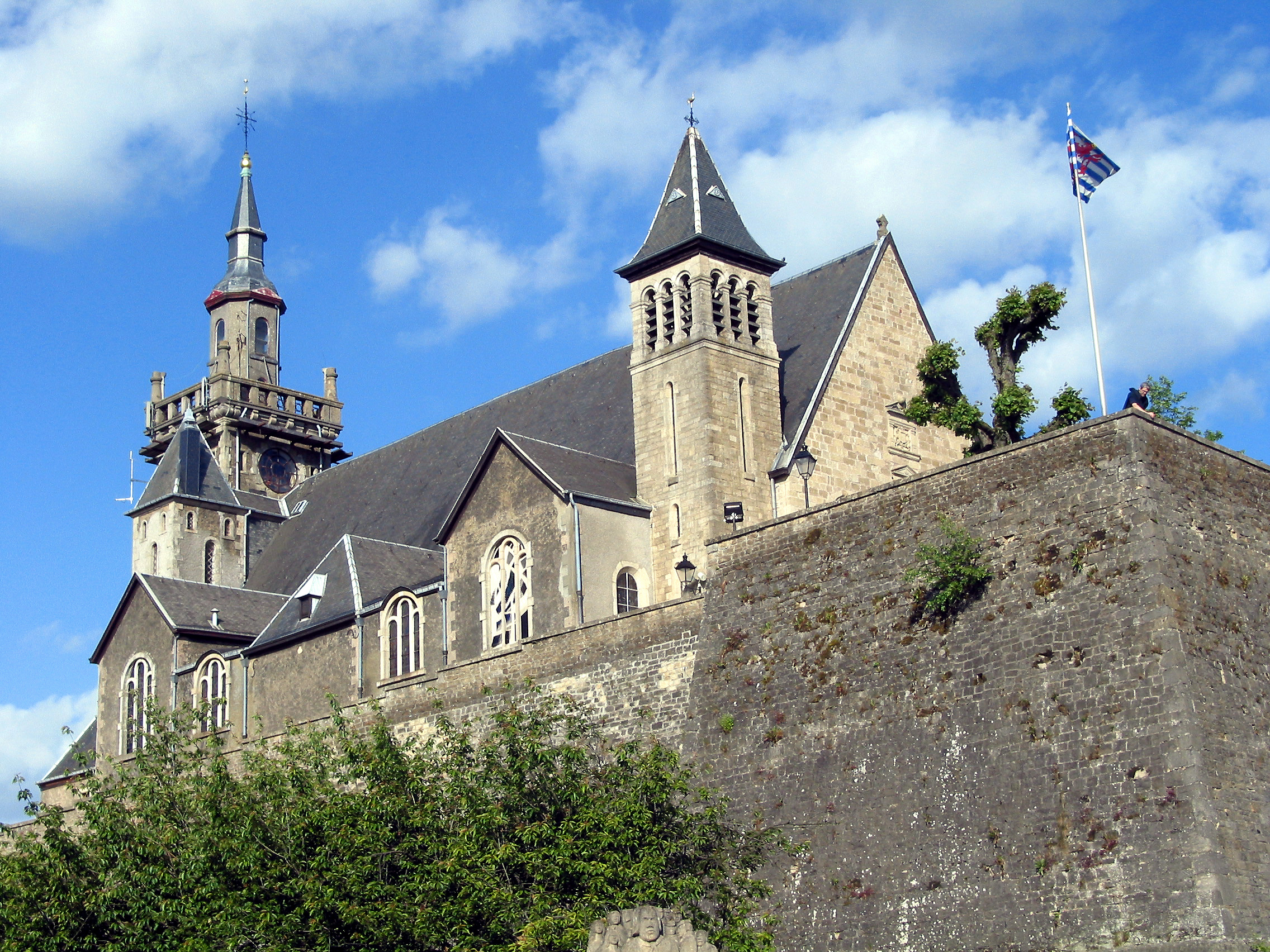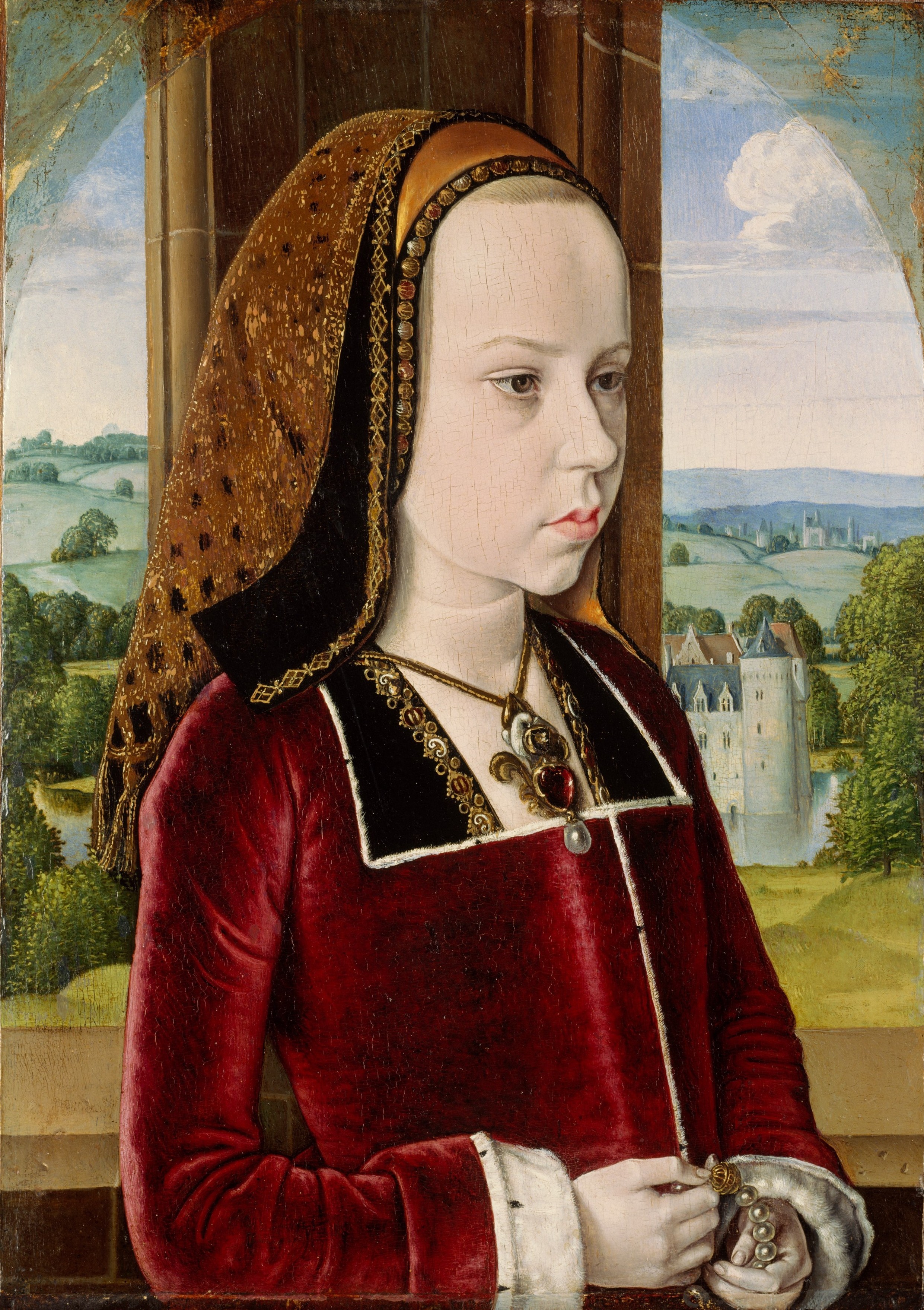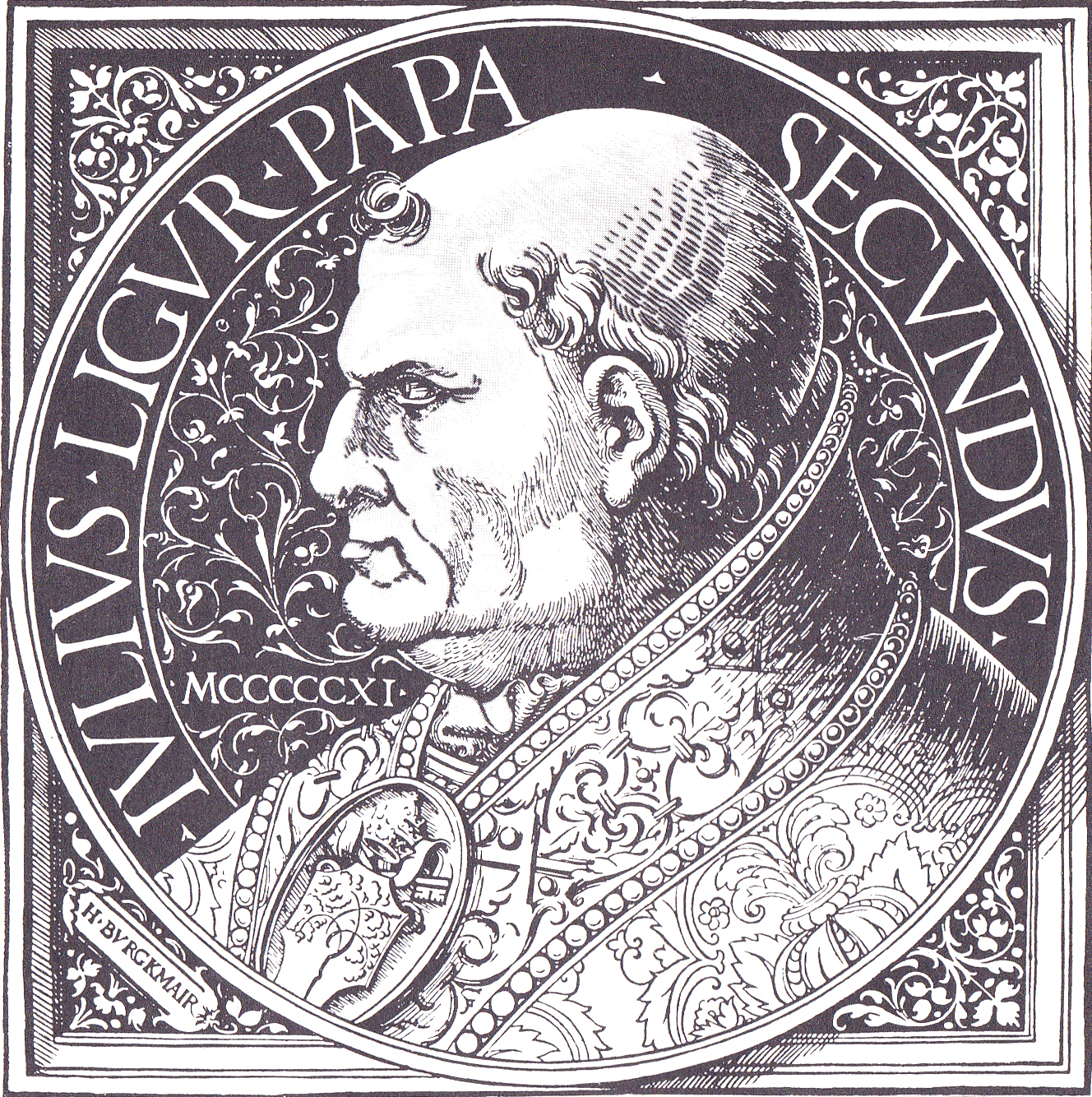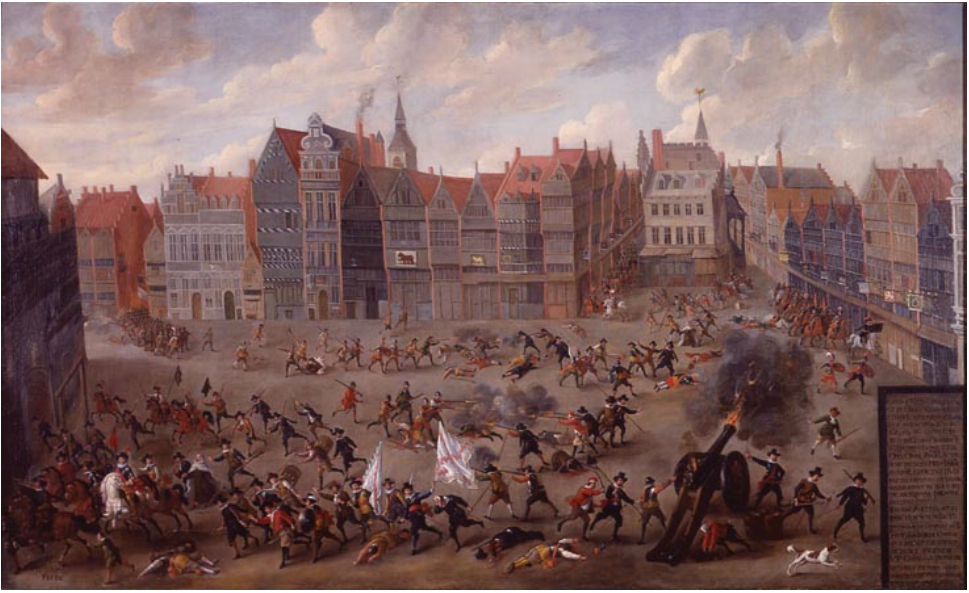|
Jérôme De Busleyden
Hieronymus van Busleyden (Dutch: Jeroen van Busleyden; French: Jérôme de Busleyden) (c.1470 – 27 August 1517) was a patron of learning and a humanist from the Habsburg Netherlands. His name is usually partially Latinized in English, and can also appear as Hieronymus Busleyden or fully Latinized as Hieronymus Buslidius.His forename in Latin, Hieronymus, is also spelled as Hiëronymus, Hieronimus or Hiëronimus, and his forename in Dutch, Jeroen, has a variant as Jeroom. Capitalization of 'van' occurs, and/or a spelling as Busleiden and in German as Bauschleiden or in Luxembourgish Bauschelt (''Jérôme vu Bauschelt''), since an ancestor had come from that place known in English by the French name Boulaide; his birthplace Arlon is in (the today Belgian province of) Luxembourg. English commentators of Thomas More's ''Utopia'' also nam'Jerome Busleyden' an'Jerome de Busleyden' Life Busleyden was born in Arlon as a son of Jeanne Elisabeth de Mussey,Sources name Jeanne Elisabeth ... [...More Info...] [...Related Items...] OR: [Wikipedia] [Google] [Baidu] |
Arlon
Arlon (; ; ; ) is a City status in Belgium, city and Municipalities in Belgium, municipality of Wallonia, and the capital of the Luxembourg (Belgium), province of Luxembourg in the Ardennes, Belgium. With a population of just over 28,000, it is the smallest provincial capital in Belgium. Arlon is also the capital of its cultural region: the Arelerland (Land of Arlon in Luxembourgish). The municipality consists of the following deelgemeente, sub-municipalities: Arlon proper, Autelbas, Bonnert, Guirsch, Heinsch, Belgium, Heinsch, and Toernich. Other population centers include: Autelhaut, Clairefontaine, Fouches, Belgium, Fouches, Frassem, Freylange, Hachy, Belgium, Hachy, Heckbous, Rosenberg, Sampont, Schoppach, Sesselich, Seymerich, Stehnen, Sterpenich, Stockem, Udange, Belgium, Udange, Viville, Waltzing, Weyler, and Wolberg. History Origins Before the Ancient Rome, Roman conquests of Gaul, the territory of Arlon and a vast area to the southeast were settled by the Treve ... [...More Info...] [...Related Items...] OR: [Wikipedia] [Google] [Baidu] |
Leuven
Leuven (, , ), also called Louvain (, , ), is the capital and largest City status in Belgium, city of the Provinces of Belgium, province of Flemish Brabant in the Flemish Region of Belgium. It is located about east of Brussels. The municipality itself comprises the deelgemeente, sub-municipalities of Heverlee, Kessel-Lo, Leuven proper, Wilsele, Wijgmaal and part of Haasrode, Leuven, Haasrode and Korbeek-Lo, Leuven, Korbeek-Lo. It is the eighth largest city in Belgium, with more than 100,244 inhabitants. Leuven has been a university city since 1425. This makes it the oldest university city in the Low Countries. KU Leuven, the largest Dutch-speaking university in the world and the largest university in the Low Countries (and thus also Belgium's largest university), has its flagship campus in Leuven. The city is home of the headquarters of Anheuser-Busch InBev, the world's largest beer brewer and sixth-largest fast-moving consumer goods company. History Middle Ages The earli ... [...More Info...] [...Related Items...] OR: [Wikipedia] [Google] [Baidu] |
Charles V, Holy Roman Emperor
Charles V (24 February 1500 – 21 September 1558) was Holy Roman Emperor and Archduke of Austria from 1519 to 1556, King of Spain (as Charles I) from 1516 to 1556, and Lord of the Netherlands as titular Duke of Burgundy (as Charles II) from 1506 to 1555. He was heir to and then head of the rising House of Habsburg. His dominions in Europe included the Holy Roman Empire, extending from Germany to northern Italy with rule over the Austrian hereditary lands and Burgundian Low Countries, and Spain with its possessions of the southern Italian kingdoms of Naples, Sicily and Sardinia. In the Americas, he oversaw the continuation of Spanish colonization and a short-lived German colonization. The personal union of the European and American territories he ruled was the first collection of realms labelled " the empire on which the sun never sets". Charles was born in Flanders to Habsburg Archduke Philip the Handsome, son of Maximilian I, Holy Roman Emperor and Mary of Burg ... [...More Info...] [...Related Items...] OR: [Wikipedia] [Google] [Baidu] |
Regency (government)
In a monarchy, a regent () is a person appointed to govern a state because the actual monarch is a minor, absent, incapacitated or unable to discharge their powers and duties, or the Interregnum, throne is vacant and a new monarch has not yet been determined. The rule of a regent or regents is called a regency. A regent or regency council may be formed ''ad hoc'' or in accordance with a constitutional rule. ''Regent'' is sometimes a formal title granted to a monarch's most trusted advisor or personal assistant. If the regent is holding the position due to their being in the Order of succession, line of succession, the compound term ''prince regent'' is often used; if the regent of a minor is their mother, and she is wife or Queen dowager, widow of the king, she would be referred to as ''queen regent''. If the formally appointed regent is unavailable or cannot serve on a temporary basis, a may be appointed to fill the gap. In a monarchy, a regent usually governs due to one ... [...More Info...] [...Related Items...] OR: [Wikipedia] [Google] [Baidu] |
Archduchess Margaret Of Austria
Margaret of Austria (; ; ; ; 10 January 1480 – 1 December 1530) was Governor of the Habsburg Netherlands from 1507 to 1515 and again from 1519 until her death in 1530. She was the first of many female regents in the Netherlands. She was variously the Princess of Asturias, Duchess of Savoy, and was born an Archduchess of Austria. Her life until her mid-twenties was dominated by her importance in political marriages, and the early death of many of her close family. She was engaged for three marriage alliances, and completed two, but both husbands died within a few years: six months in 1497 in the case of John, Prince of Asturias, and three years with Philibert II, Duke of Savoy, from 1501. Her mother had died when she was two, and her only brother in 1506. Thereafter she made a success, according to most historians, of the highly important role of regent or governor of the Habsburg Netherlands, for firstly her father Maximilian I, Holy Roman Emperor, then her nephew Char ... [...More Info...] [...Related Items...] OR: [Wikipedia] [Google] [Baidu] |
Maximilian I, Holy Roman Emperor
Maximilian I (22 March 1459 – 12 January 1519) was King of the Romans from 1486 and Holy Roman Emperor from 1508 until his death in 1519. He was never crowned by the Pope, as the journey to Rome was blocked by the Venetians. He proclaimed himself elected emperor in 1508 at Trent, with Pope Julius II later recognizing it. This broke the tradition of requiring a papal coronation for the adoption of the Imperial title. Maximilian was the only surviving son of Frederick III, Holy Roman Emperor, and Eleanor of Portugal. From his coronation as King of the Romans in 1486, he ran a double government, or ''Doppelregierung'' with his father until Frederick's death in 1493. Maximilian expanded the influence of the House of Habsburg through war and his marriage in 1477 to Mary, Duchess of Burgundy. However, he also lost his family's lands in Switzerland to the Swiss Confederacy. Through the marriage of his son Philip the Handsome to eventual queen Joanna of Castile in 1496, Maxim ... [...More Info...] [...Related Items...] OR: [Wikipedia] [Google] [Baidu] |
Julius II
Pope Julius II (; ; born Giuliano della Rovere; 5 December 144321 February 1513) was head of the Catholic Church and ruler of the Papal States from 1503 to his death, in February 1513. Nicknamed the Warrior Pope, the Battle Pope or the Fearsome Pope, it is often speculated that he had chosen his papal name not in honor of Pope Julius I but in emulation of Julius Caesar. One of the most powerful and influential popes, Julius II was a central figure of the High Renaissance and left a significant cultural and political legacy. As a result of his policies during the Italian Wars, the Papal States increased their power and centralization, and the office of the papacy continued to be crucial, diplomatically and politically, during the entirety of the 16th century in Italy and Europe. In 1506, Julius II established the Vatican Museums and initiated the rebuilding of the St. Peter's Basilica. The same year he organized the famous Swiss Guard for his personal protection and commanded a su ... [...More Info...] [...Related Items...] OR: [Wikipedia] [Google] [Baidu] |
Mechelen
Mechelen (; ; historically known as ''Mechlin'' in EnglishMechelen has been known in English as ''Mechlin'', from where the adjective ''Mechlinian'' is derived. This name may still be used, especially in a traditional or historical context. The city's French name, ', had also been used in English in the past (in the 19th and 20th centuries); however, this has largely been abandoned. Meanwhile, the Dutch-derived ' began to be used in English increasingly from the late 20th century onwards, even while ''Mechlin'' remained still in use (for example, a ''Mechlinian'' is an inhabitant of this city or someone seen as born-and-raised there; the term is also the name of the city dialect; as an adjective ''Mechlinian'' may refer to the city or to its dialect.) is a city and municipality in the province of Antwerp in the Flemish Region of Belgium. The municipality comprises the city of Mechelen proper, some quarters at its outskirts, the hamlets of Nekkerspoel (adjacent) and Battel ... [...More Info...] [...Related Items...] OR: [Wikipedia] [Google] [Baidu] |
Great Council Of Mechelen
From the 15th century onwards, the Great Council of the Netherlands at Mechelen (Dutch: ; French: ; German: ) was the highest court in the Burgundian Netherlands. It was responsible for the Dutch-, French- and German-speaking areas. In Luxembourgish the phrase "" (we'll go to Mechelen) still means playing one's last trump card. The Grote Raad first sat in the Schepenhuis in Mechelen then, from 1616, in the (old) palace of Margaretha of Austria on Keizerstraat. Origins and history The medieval rulers were assisted by advisers. Together with the ruler they formed the Council of State, also called the ''consilium'' or ''curia''. Gradually the council became more specialised, with separate financial, judicial and political council emerging. In the Burgundian Netherlands, the councils initially travelled with the Duke. In 1473 Duke Charles the Bold decided to establish the council in a specific location, in Mechelen. The council took on the name of the Parliament of Mechelen. After ... [...More Info...] [...Related Items...] OR: [Wikipedia] [Google] [Baidu] |
Councillor
A councillor, alternatively councilman, councilwoman, councilperson, or council member, is someone who sits on, votes in, or is a member of, a council. This is typically an elected representative of an electoral district in a municipal or regional government, or other local authority. The title of a councillor varies geographically, with a name generally being preceded by their title (or the shortened version Cllr when written) in formal or council-related situations in many places. Canada Due to the control that the provinces have over their municipal governments, terms that councillors serve vary from province to province. Unlike most provincial elections, municipal elections are usually held on a fixed date of 4 years. Finland ''This is about honorary rank, not elected officials.'' In Finland councillor (''neuvos'') is the highest possible title of honour which can be granted by the President of Finland. There are several ranks of councillors and they have existed si ... [...More Info...] [...Related Items...] OR: [Wikipedia] [Google] [Baidu] |
Henry VIII Of England
Henry VIII (28 June 149128 January 1547) was King of England from 22 April 1509 until his death in 1547. Henry is known for his Wives of Henry VIII, six marriages and his efforts to have his first marriage (to Catherine of Aragon) annulled. His disagreement with Pope Clement VII about such an annulment led Henry to initiate the English Reformation, separating the Church of England from papal authority. He appointed himself Supreme Head of the Church of England and dissolution of the monasteries, dissolved convents and monasteries, for which he was List of people excommunicated by the Catholic Church, excommunicated by the pope. Born in Greenwich, Henry brought radical changes to the Constitution of England, expanding royal power and ushering in the theory of the divine right of kings in opposition to papal supremacy. He frequently used charges of treason and heresy to quell dissent, and those accused were often executed without a formal trial using bills of attainder. He achi ... [...More Info...] [...Related Items...] OR: [Wikipedia] [Google] [Baidu] |







